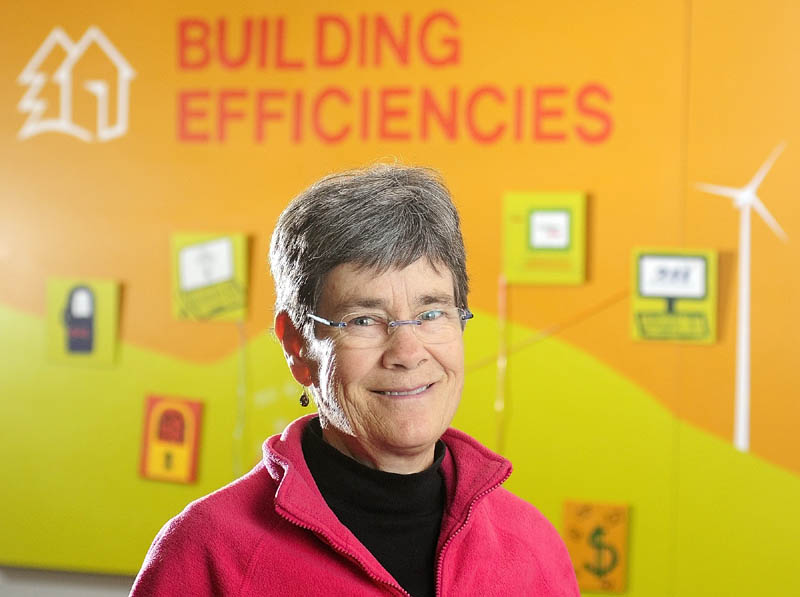AUGUSTA — While it doesn’t have the gay-friendly vibe of Portland or Hallowell, Maine’s capital city scored better than average on a recent survey that examined city services, employment practices and police attentiveness to lesbian and gay community members in 137 municipalities nationwide.
The Human Rights Campaign released its first ever Municipal Equality Index earlier this week, awarding Augusta 67 points out of 100. The city got high scores in areas such as relationship recognition and nondiscrimination laws; but it lost points because it does not pay a portion of domestic partner health benefits, it does not have a liaison or office to address gay issues, and it does not have a gay and lesbian liaison at the Police Department.
Nevertheless, with a national average score of 59, Augusta finished ahead of the pack, said Paul Guequierre, a spokesman for the Human Rights Campaign, which is based in Washington D.C.
“We hope people use this as a tool to evaluate their own policies and practices and for advocates to go to their leaders and say ‘great job’ or ‘let’s see how we can improve,'” he said.
The group examined all 50 state capitals; the 50 most populous cities in the country; and large, mid-size and small municipalities with high proportions of same-sex couples. Augusta was the only city or town in Maine to be examined, although HRC plans to study another batch of cities and towns next year, Guequierre said.
Augusta resident Dale McCormick, a founder of EqualityMaine in the 1980s who in 1990 became the first openly gay person elected to the Legislature, said she loves living in the city and that she finds city officials accessible. She served as a state senator, state treasurer and director of the Maine State Housing Authority.
McCormick said some of the criteria — such as requiring the city to have a liaison to the Police Department — may not be necessary in a small city such as Augusta.
“I don’t think we have a liaison to any one ethnic group or minority,” she said. “I don’t think any of us care if we have a liaison. If we were having a problem with hate crimes, a bunch of us would be right over there (at city hall).”
Also, while Augusta doesn’t have the reputation of Portland or Ogunquit, it has served for decades as a safe haven for gays and lesbians, she said.
“In the old days, when gay and lesbian people were forced to hide, we had Papa Joe’s,” she said, referring to a now-shuttered downtown gay bar. “People came from as far as Bangor, and gay and lesbian people found acceptance in a community.”
City Manager William Bridgeo said he was pleased to see that Augusta scored better than 31 other state capitals in the survey. He agreed with McCormick’s assessment that if a problem emerged with the lesbian, gay, bisexual or transgender community, the city would deal with it head-on.
“If there had been a history of discrimination toward the LGBT community, then perhaps you would have formed a mayor’s commission,” he said. “Trust me, if I were to hear a report that some agency of city government was even suspected of treating anyone inappropriately, we’d be right on it.”
The city has several gay and lesbian employees, but the human resources department has not heard of any on-the-job areas of conflict, said Human Resources Director Kristy Gould. She said there hasn’t been a big push in the community for more resources or recognition.
“It isn’t something that has been raised,” she said. “We don’t have a community group to interact with in our area.”
Maine became one of only nine states across the country to allow gay and lesbian couples to marry when it approved a ballot measure advanced by gay advocates last month. That type of statewide work will continue to be the focus of EqualityMaine, said Betsy Smith, the group’s executive director.
“Passing a law is one step, but to be accepted, fully equal in hearts and minds, is a goal we still have not achieved,” she said.
Smith helped HRC gather information about Augusta. She said she was unaware of any local advocates who pushed the city to become more inclusive.
“I don’t know of much advocacy that has happened at the Augusta municipal level to get them even to where they are,” she said.
The municipal survey is the continuation of work done by the HRC to examine various aspects of equality, and it now joins a corporate index and a health care index, said Guequierre, of the Human Rights Campaign. In the municipal index, the HRC was surprised to find that gay destinations, such as Provincetown, Mass., and Rehoboth Beach, Del., scored lower than expected. Provincetown got 59 points, and Rehoboth Beach got 53, according to the survey.
“The explanation for this is simple: The MEI is an evaluation of laws and policies, not of the friendliest places to live,” the study says. “The MEI highlights opportunities for these highly welcoming places to revisit and improve their laws and policies to ensure they are as inclusive of LGBT people in city services and protections as they are in their hearts.”
Bridgeo said he too was surprised to learn that Provincetown and other places did not score as high as Augusta. He said in his 15 years as city manager, he’s been impressed by how easy it is for residents to take their concerns to city officials.
“It’s pretty darn easy for a citizen to get to elected officials with any concern they might have,” he said.
Susan Cover — 621-5643
scover@mainetoday.com
Send questions/comments to the editors.



Comments are no longer available on this story